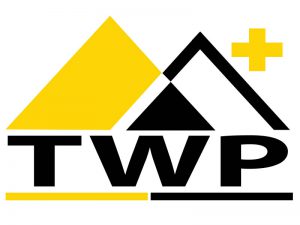Common Moving Scams and How to Avoid Them
Relocating from one place to another can be an exciting journey, but it also comes with its fair share of risks, particularly when it comes to fraud. The relocation sector is not immune to deceitful practices, leaving many individuals vulnerable to manipulative tactics. Understanding these challenges is vital for ensuring a smooth transition and safeguarding your hard-earned resources.
Fraud prevention begins with knowledge. By recognizing the various forms of exploitation present in the industry, consumers can better protect themselves from becoming victims of unscrupulous operators. This awareness enables individuals to make informed decisions and seek assistance when necessary, reducing the likelihood of falling prey to dishonest behaviors.
In the realm of consumer protection, it is essential to be proactive. Familiarizing oneself with potential pitfalls not only empowers those in the midst of relocation but also contributes to a safer environment for all consumers. With vigilance and the right strategies in place, the risks associated with dishonest practices can be significantly minimized.
Recognizing Red Flags in Relocation Estimates
When preparing for a relocation, it’s essential to carefully examine the estimates provided by various companies. One of the first signs that a company may not be trustworthy is an estimate that seems unreasonably low. If the quote given is significantly lower than others, it could indicate hidden fees or subpar service quality.
Another warning sign is the absence of a detailed breakdown in the estimate. Reputable, licensed movers will offer a comprehensive overview of costs, covering labor, transportation, and any additional services. If a company fails to provide this clarity, it may be a tactic for misleading customers.
Be wary of companies that insist on cash-only payments or require upfront payment before services are rendered. This method of payment is often used by fraudulent entities to evade consumer protection regulations. Always opt for firms that accept credit cards or other secure payment methods, as this can add an extra layer of fraud prevention.
Additionally, check if the movers are listed with the Better Business Bureau or other consumer rating organizations. Lack of a positive reputation, bad reviews, or even no reviews at all can hint at potential issues down the road. Make sure to conduct thorough research and consult resources like https://neweramovers.com for trustworthy guidance.
Ensuring Your Moving Company is Legitimate
When planning a relocation, verifying the authenticity of the relocation service you choose is crucial for a smooth experience. One effective strategy is to confirm that your chosen provider employs licensed movers, as this indicates compliance with regulatory standards and enhances accountability.
Begin your investigation by checking online reviews and testimonials from previous clients. A reliable company usually has a track record of satisfied customers, which can be an excellent indicator of their legitimacy. Focus on feedback regarding their professionalism and adherence to timelines.
Additionally, inquire about their insurance coverage. Legitimate businesses should carry adequate liability insurance and provide proof upon request. This is an essential aspect of fraud prevention, as it safeguards your belongings during the transition.
Furthermore, consider examining their registration with the Better Business Bureau (BBB) or local regulatory bodies. Companies recognized by these organizations tend to be more trustworthy, as they must adhere to certain ethical standards and practices.
Lastly, avoid providers that require large upfront deposits or cash-only payments. Such practices are often associated with deceptive operations. Instead, seek transparent payment methods that offer recourse in case of disputes.
Protecting Your Belongings During the Move
Ensuring the safety of your possessions throughout the relocation process is crucial for a seamless transition. Start by securing comprehensive insurance options that cover potential damages or losses. This protective measure will give you peace of mind and enable effective fraud prevention.
Selecting licensed movers is key; these professionals are bound by regulations that mandate certain standards of care. Before finalizing your decision, inquire about their insurance coverage and reliability. Reliable companies will provide clear information about their policies and procedures for handling your items with the utmost care.
Additionally, consider personal security measures. Document your belongings by taking an inventory with photographs. This can serve as a vital reference in case of disputes or claims. Keeping your valuables close and supervised at all times minimizes the risk of theft or damage during the process.
Lastly, ensure that your chosen service providers prioritize consumer protection by adhering to legal guidelines. Transparent communication throughout the entire process fosters trust and allows you to remain informed, ultimately leading to a safer experience for your belongings.

